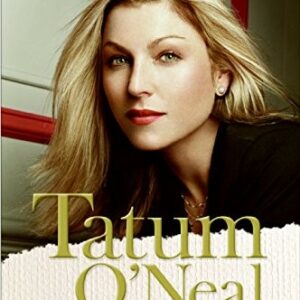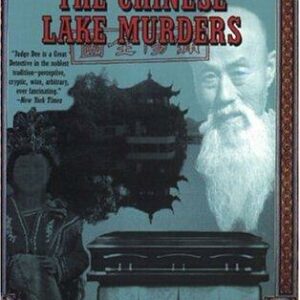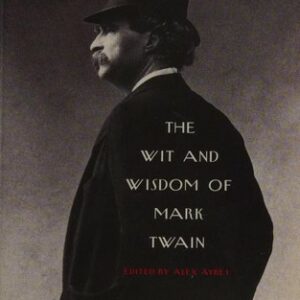The Order of Time
$22.00
| Title | Range | Discount |
|---|---|---|
| Trade Discount | 5 + | 25% |
- Description
- Additional information
Description
Description
One of TIME’s Ten Best Nonfiction Books of the Decade
“Meet the new Stephen Hawking . . . The Order of Time is a dazzling book.” —The Sunday Times
From the bestselling author of Seven Brief Lessons on Physics, Reality Is Not What It Seems, Helgoland, and Anaximander comes a concise, elegant exploration of time.
Why do we remember the past and not the future? What does it mean for time to “flow”? Do we exist in time or does time exist in us? In lyric, accessible prose, Carlo Rovelli invites us to consider questions about the nature of time that continue to puzzle physicists and philosophers alike.
For most readers this is unfamiliar terrain. We all experience time, but the more scientists learn about it, the more mysterious it remains. We think of it as uniform and universal, moving steadily from past to future, measured by clocks. Rovelli tears down these assumptions one by one, revealing a strange universe where at the most fundamental level time disappears. He explains how the theory of quantum gravity attempts to understand and give meaning to the resulting extreme landscape of this timeless world. Weaving together ideas from philosophy, science and literature, he suggests that our perception of the flow of time depends on our perspective, better understood starting from the structure of our brain and emotions than from the physical universe.
Already a bestseller in Italy, and written with the poetic vitality that made Seven Brief Lessons on Physics so appealing, The Order of Time offers a profoundly intelligent, culturally rich, novel appreciation of the mysteries of time.“Highly original. . . . Chapter by chapter, Rovelli shows how modern physics has annihilated common understandings of time. . . . the many other excellent explanations of science, the heart and humanity of the book, its poetry and its gentle tone raise it to the level and style of such great scientist-writers as Lewis Thomas and Rachel Carson.” —Alan Lightman, New York Times Book Review
“ An elegant grapple with one of physics’ deepest mysteries. . . .A masterly writer. . . . In this little gem of a book, Mr. Rovelli first demolishes our common-sense notion of time. . . .an ambitious book that illuminates a thorny question, that succeeds in being a pleasurable read.” —Wall Street Journal
“No one writes about the cosmos like theoretical physicist Carlo Rovelli. . . Rovelli’s new story of time is elegant and lucidly told, whether he is revealing facts or indulging in romantic-philosophic speculation about the nature of time.” —The Washington Post
“An incredible book. . . [Rovelli] manages to communicate some of the most complex and inspiring ideas we have about time with a poetry, charm and wit that is infectious.” —Benedict Cumberbatch
“Rovelli has crafted an accessible, mind-expanding read that challenges our perceptions of time, space and reality.” —TIME
“A deep—and remarkably readable—dive into the fundamental nature of time. . . written with enough charm and poetry to engage the imagination of anyone who reads it.” —Financial Times
“The Order of Time, by Carlo Rovelli, hardly seems like pool-side reading, but anyone with the least interest in the science of the physical world will be by turns astonished, baffled and thrilled by what Rovelli has to say about the true nature of time, which has little in common with our everyday conception of it. Rovelli is the poet of quantum physics.” —John Banville
“We live in an age of wonderful science writing, and Carlo Rovelli’s new book, The Order of Time, is an example of the very best. Time is something we think we know about instinctively; here he shows how profoundly strange it really is.” —Philip Pullman
“Mind-bending.” —Michael Pollan
“Rovelli is a wonderful writer, and so even when you (or perhaps I should just stick to the first-person singular) don’t know what’s going on, he comes up with enjoyable, occasionally beautiful metaphors to help you (me). . . The ideas in The Order of Time are extraordinary, and I rather fear you should read it” —Nick Hornby, The Believer
“The Order of Time is a little wonder of a book. It provides surprising insights into an increasingly mysterious world, offers warmly humane reflections on our existential condition, and sustains a virtual conversation that will continue long after the reading has ceased.” —PopMatters
“A dizzying, poetic work” —The Guardian
“A compact and elegant book” —Nature
“Rovelli, a physicist and one of the founders of loop quantum gravity theory, uses literary, poetical and historical devices to unravel the properties of time, what it means to exist without time and, at the end, how time began.” —Scientific American
“Physics’ literary superstar makes us rethink time . . . The Order of Time will surely establish Rovelli among the pantheon of great scientist-communicators . . . More of this please” —New Scientist
“Where other writers struggle to get their complex ideas across, Rovelli introduces profound notions with ease, using simple but evocative language . . . He also has a knack for mixing his serious enterprise with a sense of humor.” —Science Magazine
“In this fascinating new book, Carlo Rovelli weaves together physics, philosophy, and art to explore the enduring mystery of time itself.” —Bustle
“An elegantly concise primer makes theoretical physics intelligible . . . it would be to do a disservice to Rovelli and this stunningly written book, to say that brevity is its main virtue.” —The Times (UK) Carlo Rovelli is a theoretical physicist who has made significant contributions to the physics of space and time. He has worked in Italy and the United States and currently directs the quantum gravity research group of the Centre de Physique Théorique in Marseille, France. His books, including Seven Brief Lessons on Physics, The Order of Time, and Helgoland, are international bestsellers that have been translated into more than fifty languages.Introduction: Perhaps Time is the Greatest Mystery
I stop and do nothing. Nothing Happens. I am thinking about nothing. I listen to the passing of time.
This is time, familiar and intimate. We are taken by it. The rush of seconds, hours, years that hurls us toward life then drags us toward nothingness…. We inhabit time as fish live in water. Our being is being in time. Its solemn music nurtures us, opens the world to us, troubles us, frightens and lulls us. The universe unfolds into the future, dragged by time, and exists according to the order of time.
In Hindu mythology, the river of the cosmos is portrayed with the sacred image of Shiva dancing: his dance supports the coursing of the universe; it is itself the f lowing of time. What could be more universal and obvious than this flowing?
And yet things are somewhat more complicated than this. Reality is often very different from what it seems. The Earth appears to be flat but is in fact spherical. The sun seems to revolve in the sky when it is really we who are spinning. Neither is the structure of time what it seems to be: it is different from this uniform, universal flowing. I discovered this, to my utter astonishment, in the physics books I read as a university student: time works quite differently from the way it seems to.
In those same books I also discovered that we still don’t know how time actually works. The nature of time is perhaps the greatest remaining mystery. Curious threads connect it to those other great open mysteries: the nature of mind, the origin of the universe, the fate of black holes, the very functioning of life on Earth. Something essential continues to draw us back to the nature of time.
Wonder is the source of our desire for knowledge, and the discovery that time is not what we thought it was opens up a thousand questions. The nature of time has been at the center of my life’s work in theoretical physics. In the following pages, I give an account of what we have understood about time and the paths that are being followed in our search to understand it better, as well as an account of what we have yet to understand and what it seems to me that we are just beginning to glimpse.
Why do we remember the past and not the future? Do we exist in time, or does time exist in us? What does it really mean to say that time “passes”? What ties time to our nature as persons, to our subjectivity?
What am I listening to when I listen to the passing of time?
This book is divided into three unequal parts. In the first, I summarize what modern physics has understood about time. It is like holding a snowflake in your hands: gradually, as you study it, it melts between your fingers and vanishes. We conventionally think of time as something simple and fundamental that f lows uniformly, independently from everything else, from the past to the future, measured by clocks and watches. In the course of time, the events of the universe succeed each other in an orderly way: pasts, presents, futures. The past is fixed, the future open. . . . And yet all of this has turned out to be false.
One after another, the characteristic features of time have proved to be approximations, mistakes determined by our perspective, just like the flatness of the Earth or the revolving of the sun. The growth of our knowledge has led to a slow disintegration of our notion of time. What we call “time” is a complex collection of structures, of layers. Under increasing scrutiny, in ever greater depth, time has lost layers one after another, piece by piece. The first part of this book gives an account of this crumbling of time.
The second part describes what we have been left with: an empty, windswept landscape almost devoid of all trace of temporality. A strange, alien world that is nevertheless still the one to which we belong. It is like arriving in the high mountains, where there is nothing but snow, rocks, and sky. Or like it must have been for Armstrong and Aldrin when venturing onto the motionless sand of the moon. A world stripped to its essence, glittering with an arid and troubling beauty. The physics on which I work—quantum gravity—is an attempt to understand and lend coherent meaning to this extreme and beautiful landscape. To the world without time.
The third part of the book is the most difficult, but also the most vital and the one that most closely involves us. In a world without time, there must still be something that gives rise to the time that we are accustomed to, with its order, with its past that is different from the future, with its smooth f lowing. Somehow, our time must emerge around us, at least for us and at our scale.
This is the return journey, back toward the time lost in the first part of the book when pursuing the elementary grammar of the world. As in a crime novel, we are now going in search of a guilty party: the culprit who has created time. One by one, we discover the constituent parts of the time that is familiar to us—not, now, as elementary structures of reality, but rather as useful approximations for the clumsy and bungling mortal creatures we are: aspects of our perspective, and aspects, too, perhaps, that are decisive in determining what we are. Because the mystery of time is ultimately, perhaps, more about ourselves than about the cosmos. Perhaps, as in the first and greatest of all detective novels, Sophocles’ Oedipus Rex, the culprit turns out to be the detective.
Here, the book becomes a fiery magma of ideas, sometimes illuminating, sometimes confusing. If you decide to follow me, I will take you to where I believe our knowledge of time has reached: up to the brink of that vast nocturnal and star-studded ocean of all that we still don’t know.US
Additional information
Additional information
| Weight | 10.2 oz |
|---|---|
| Dimensions | 0.9500 × 5.0500 × 7.6100 in |
| Imprint | |
| Format | |
| ISBN-13 | |
| Author | |
| Audience | |
| BISAC | |
| Subjects | nonfiction books, SCI055000, big bang theory, quantum physics, theoretical physics, popular science, astronomy gifts, science book, new york times best sellers, science gifts, science books for adults, physics gifts, nonfiction books best sellers, nonfiction best sellers, physics book, new york time best sellers, carlo rovelli, helgoland, science books, science, books for dad, gifts for mom, physics, time, astronomy, Space, cosmos, gifts for dad, space books, astronomy books, black holes, quantum mechanics, SCI015000, astrophysics, order |










